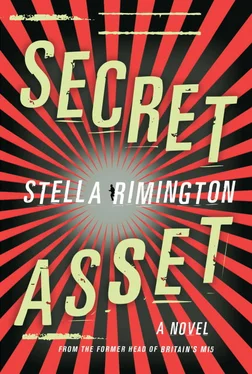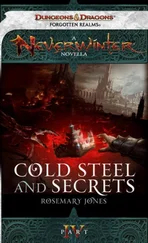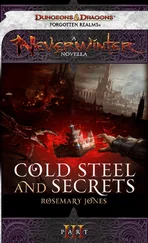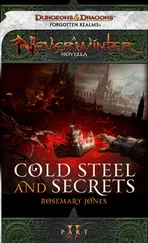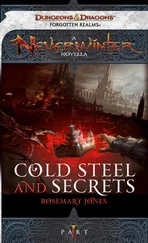The man seemed to be wearing a uniform, and on her face she felt something wet and cold. The blur in her eyes suddenly resolved itself and she saw with snapshot clarity a station attendant in front of her, extending an arm as he dabbed at her cheeks with a wet tissue. She was sitting on a plastic chair in what looked to be a large broom cupboard under the stairs of the Underground station.
“What happened?” she asked, though she had a fair idea she was still alive. If there were an afterlife, she decided, it would not look like this.
“You fainted, Miss.” The man stopped dabbing with his tissue. “It was a bit of a crush.” He got up and looked down solicitously at Peggy. “Take some deep breaths.”
“I don’t remember,” said Peggy, feeling puzzled. Then she recalled the insistent pressure on her back, the propelling firmness that was carrying her steadily towards…
The stationmaster was saying, “Lucky for you the woman next to you saw you starting to drop. She said she thought you were going to topple over right in front of the train. But she managed to grab you in time—there was a builder bloke who helped her haul you back. The only casualty was a pair of trousers she’d just bought for her husband.”
“I am sorry,” said Peggy, trying to pull herself together. “Did she leave her name?”
“No, once I arrived on the scene she took the next train. Said she was late as it was.”
And Peggy suddenly remembered her own sense of urgency. She stood up, a little wobbly, but the dizziness soon receded. The man looked at her anxiously. “Are you sure you’re fit to travel?”
“I’m all right now,” she declared, then smiled at the attendant. “I’m very grateful for your help.”
He stepped out from the room onto the platform and looked at the board. “You’re in luck. The next train’s due in two minutes.”
“Thank you,” said Peggy, but she was already moving towards the escalator. She’d decided that in the circumstances, she deserved a taxi, but she would certainly not claim it on her expenses. No one except Liz was going to be told how she’d given in to panic.
Westminster Green, a small patch of grass opposite the Houses of Parliament, is a favourite spot for TV journalists to interview MPs. In rainy weather its microphone and camera positions are protected by umbrellas. Today, in the June sunshine, a small crowd was gathered to watch the BBC’s political correspondent interviewing a member of the Cabinet.
From where she was sitting on a bench in Victoria Tower Gardens, across the road, Liz could not hear the interview, although she could recognise the two participants, and she guessed that the subject was the counter-terrorist legislation the Government was attempting to get through Parliament, in the face of much opposition. Like most of her colleagues Liz had her own views on the Government’s proposals, but for the most part she chose to keep her own counsel, reflecting that they would make very little change to the nature of her work.
Liz was waiting for Charles Wetherby. When she had rung to ask to see him urgently, to her surprise he had insisted that they meet outside Thames House. She had made the ten-minute walk to the little park, and was now enjoying the warm afternoon, trying to catch some sun on her face. If she were right about her conclusion, she wouldn’t be seeing much sun or the outside world any time soon.
When Wetherby joined her on the bench a quarter of an hour later, Liz plunged straight in with a description of Peggy’s interview with Tom Dartmouth’s ex-wife. Then she summarised her recent interviews, setting out their contradictions which she now thought she had resolved. Through a mix of intuition, logic and Peggy’s finds that morning, Liz had come to a conclusion. “Let’s go through it all again slowly,” said Wetherby and Liz knew that he was not doubting her analysis, but was trying to assure himself that her conclusion had not emerged from some misperception or misreading which might mislead him too.
“You believe O’Phelan was the recruiter for the mole, at the instigation of Sean Keaney. Just explain again why?”
Liz thought carefully for a moment. “Because,” she said, trying to speak as clearly as she was thinking, “O’Phelan was at Oxford; he held strong nationalist views; and he had a connection to Sean Keaney through this woman Kirsty, who by her own admission befriended O’Phelan at Keaney’s instigation.”
A man in pinstripes passed by the bench and nodded at Wetherby. Despite the day’s bright sun, he was carrying an umbrella, tightly furled. Wetherby nodded back at him, then smiled at Liz. “The Treasury. One of Her Majesty’s more old-fashioned servants. All that’s missing is the bowler hat.” He returned to their subject. “Anyway, let’s agree for the moment that O’Phelan was the recruiter. How do we know it wasn’t Michael Binding he recruited?”
“We don’t for sure, but it seems improbable. There can’t be any question that the two of them fell out: O’Phelan’s original reference could not have been intended to help Binding get into the Service.”
Wetherby nodded in agreement. “I saw the file. After a letter like that, Binding was fortunate to be accepted.”
Across the street, the Minister was holding his hand up, calling for another take. Liz continued: “It’s true that their accounts of why they fell out differ: O’Phelan said it was because Binding’s work was second-rate; Binding says it was because he had a row at a party with Kirsty.”
“And who do you believe?”
“Binding,” Liz said without hesitation.
Wetherby gave an ironic smile. He knew Liz’s opinion of her patronising colleague. “Why’s that?” he said, not challengingly, but to try and set out the sequence of argument. Liz thought Wetherby would have made an excellent teacher—he was relentlessly searching for clarity.
“I don’t believe Binding was a bad student. He had a First from Manchester, and he’d worked too hard to get to Oxford simply to down tools when he was there. In any case Binding’s own story may make O’Phelan look vengeful and malicious, but it doesn’t cast Binding himself in a very good light.”
“The ‘go back to your peat bog’ remark?” When Liz nodded, Wetherby asked, “If you ruled out Binding as our mole, why did that lead you to Tom?”
“It didn’t, until he added his own ingredient, which was an account of O’Phelan that didn’t square with what anybody else had told me. Tom claimed O’Phelan was a sexual predator with his male students, yet none of the evidence from Binding and Maguire, or the police investigation into his murder, backs that up. In fact, the student Tom claimed O’Phelan jumped on was the same rugby heavy who, according to Binding, tried to chat up Kirsty at the party in St. Antony’s.”
“But if Tom was the mole, why would he invent this story about O’Phelan?”
For the first time Liz felt a slight chill, as their discussion moved from motivation to murder. “To divert attention from the real reason O’Phelan was killed. Which was to shut him up.” Liz didn’t need to wait for the next question. “And yes, that means in my view Tom murdered O’Phelan. Just as I think Tom is the mole. There’s another thing too,” added Liz, almost as an afterthought. “Tom told me his father was killed in a road accident, but Margarita told Peggy that he committed suicide in New York.”
Wetherby was staring across the street, apparently distracted by the interminable television interview. The lack of attention was unlike him. “Charles?” she said questioningly.
He didn’t answer. Liz said, “The problem is that we can’t prove any of this. If Tom was recruited by O’Phelan for the IRA, he was never activated. He will never admit it. So unless we can tie him to O’Phelan’s murder, I don’t see what we could charge him with.”
Читать дальше
